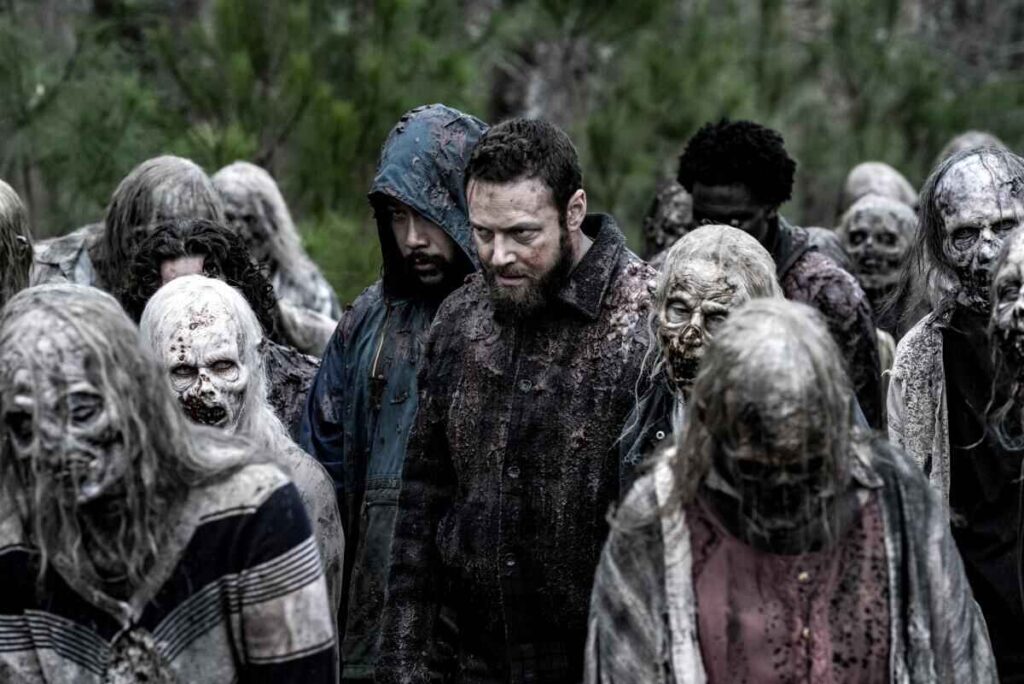Undead Insights: Deep Dives into The Walking Dead Series

“The Walking Dead” has captivated audiences worldwide with its intense drama, complex characters, and relentless zombies. Over its numerous seasons, the show has explored themes of survival, humanity, and the moral dilemmas faced in a post-apocalyptic world. This deep dive aims to explore the key elements that make “The Walking Dead” a standout series, analyzing its characters, plot development, and thematic depth.
Character Evolution
One of the hallmarks of “The Walking Dead” is its rich character development. From Rick Grimes’ transformation from a law-abiding sheriff to a hardened leader, to Carol Peletier’s evolution from a meek housewife to a formidable warrior, the characters’ journeys are both compelling and deeply human.
Rick Grimes: Initially driven by a sense of duty and a desire to reunite with his family, Rick’s character is continually tested by the harsh realities of the new world. His leadership is often challenged, and his moral compass is put to the test, leading to a darker, more pragmatic version of himself.
Daryl Dixon: Originally a lone wolf with a rough exterior, Daryl’s loyalty and sense of family grow stronger as he bonds with the group. His development from a survivalist to a key protector of the community highlights his depth and resilience.
Carol Peletier: Carol’s transformation is one of the most profound. From an abused wife to a powerful survivor, her journey is marked by immense personal growth and heartbreaking losses. Her ability to adapt and her willingness to make tough decisions are central to her character arc.
Plot and Pacing
The series is known for its gripping plot twists and pacing that keeps viewers on the edge of their seats. Each season introduces new challenges, whether it’s dealing with the undead, hostile human factions, or internal group conflicts.
Early Seasons: The initial seasons focus on survival and the immediate threat of zombies. The group faces numerous dangers as they search for a safe haven, which drives much of the early tension.
Mid-Series Arcs: As the series progresses, the focus shifts towards human threats, such as the Governor and the Saviors led by Negan. These arcs explore the complexity of rebuilding society and the brutal realities of leadership in a lawless world.
Later Seasons: The latter seasons delve into rebuilding civilization, with communities like Alexandria, Hilltop, and the Kingdom representing different approaches to creating a new world. The conflicts between these communities highlight the difficulties of cooperation and governance in a post-apocalyptic setting.
Thematic Depth

“The Walking Dead” isn’t just about zombies; it’s a profound exploration of human nature and societal constructs. Key themes include:
Survival vs. Humanity: The show constantly questions what it means to survive. Is it enough to stay alive, or do we need to maintain our humanity? Characters often face moral dilemmas that force them to choose between their principles and their survival.
Community and Isolation: The series explores the importance of community and the dangers of isolation. While banding together offers strength and resources, it also brings conflicts and power struggles. The balance between individual freedom and collective security is a recurring theme.
Hope and Despair: Despite the bleak setting, “The Walking Dead” is also about hope. Characters find moments of joy and hope amidst the horror, reminding viewers of the resilience of the human spirit. However, the show also portrays the ever-present threat of despair and the ways it can break individuals and groups.
Conclusion
“The Walking Dead” remains a powerful narrative about survival, humanity, and the complexities of life in a world overrun by the undead. Its deep character development, intricate plot lines, and rich thematic content offer viewers much more than just a horror series. As we continue to follow the journeys of our favorite characters, we are reminded of the enduring questions about what it means to be human in the face of overwhelming adversity.
